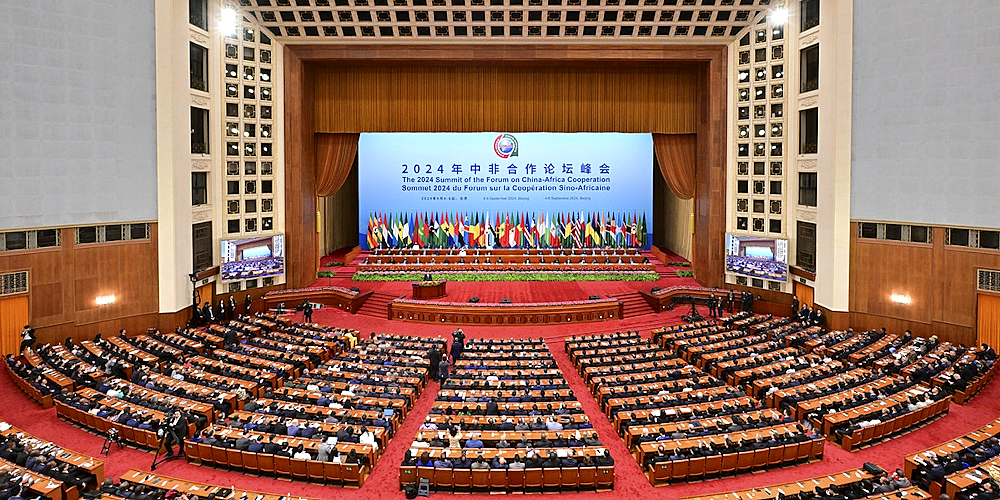
Even though its own economy is in the doldrums, China has made it clear that it intends to continue providing large amounts of aid to Africa.
However, suspicion cannot be dispelled that China’s aim is to expand its own influence in Africa rather than to help the region become self-reliant.
A summit of the Forum on China-Africa Cooperation, which brought China and 53 African countries together, was held in Beijing.
Chinese President Xi Jinping said China will provide financial assistance worth about 7.3 trillion yuan (RM4.35 trillion) over the next three years.
This is almost the same amount as the support pledged at the previous meeting in 2018.
It can be said that China flaunted its stance, both at home and abroad, of prioritising relations with African countries.
Africa is rich in natural resources such as oil and copper. With a population of 1.5 billion, Africa is expected to grow to more than 2.4 billion by 2050, making the region a very attractive market.
Recently, it has been increasing its influence in the international community as part of the so-called Global South of emerging and developing countries.
For this reason, China has been focusing its efforts on providing support to African countries with the aim of securing resources and shaping public opinion in its favour.
The main focus has been on large-scale investments in the development of major infrastructure, such as railways and roads.
However, the limitations of this approach are becoming clearer.
As a result of Beijing continuing to extend its large-scale loans without taking into account the countries’ ability to pay back, the outstanding debts to China by African nations have ballooned.
Zambia and Ethiopia have defaulted on their debts.
In 2023, China’s loans to Africa stood at US$4.6 billion (RM19.4 billion), one-sixth of the figure at its peak in 2016.
China is undoubtedly wary of the loans becoming unrecoverable.
In recent years, the Xi administration has been advocating “small but beautiful” foreign cooperation and has been shifting its focus to support such fields as telecommunications, public health and environmentally friendly development.
Although China’s own economic situation lies behind this move, these are areas in which there is a high level of need on the African side.
The question is whether China will be able to provide thorough support to promote Africa’s independence and growth.
China has also said that it will work with Africa on U.N. reform.
The “Beijing Action Plan” adopted with African leaders clearly stated that there should be more representation of African countries in the U.N. Security Council.
Africa has three regional quotas out of the 10 non-permanent seats of the Security Council, but it is calling for reform saying African representation is insufficient.
The so-called Group of Four countries, including Japan and Germany, which are aiming to become permanent members of the council, also support Africa’s demands.
However, it is China that has opposed a Security Council reform plan led by the G4 and has blocked the momentum for reform.
If China is serious about supporting Africa, it should show it in its actions.
ADVERTISEMENT
ADVERTISEMENT








































